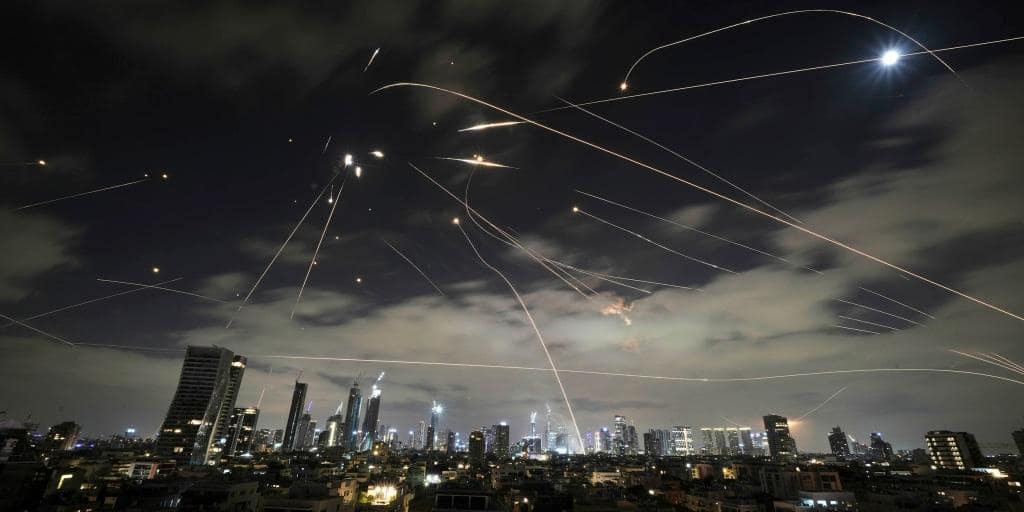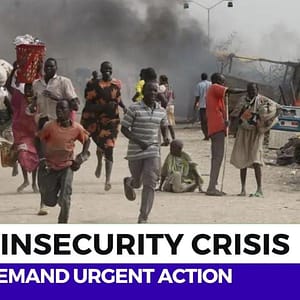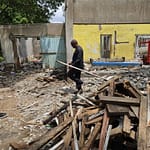Imagine a storm, long brewing on the horizon, suddenly unleashing its first violent gusts. That feels like the current state of affairs between Israel and Iran – a fraught relationship that has moved from the shadows into a dangerous, more open phase. While the world observes this escalating exchange with a growing sense of unease, a key group of international power brokers has stepped forward. The G7 leaders, representing a significant portion of the global economy and influence, have collectively pointed to the brewing tempest and offered a single, critical piece of advice: Stand down. Lessen the pressure. Unclench the fists. Their call for de-escalation isn’t just diplomatic nicety; it’s a recognition of the profound risks inherent in letting this particular storm rage unchecked, a global signal that echoes the urgency felt across jittery capitals.
Table of Contents
- A Summit’s Urgent Symphony for Calm
- Stepping Back from the Precipice: The Diplomatic Mandate
- Concrete Measures Required to Silence the Drumbeat of War
- In Conclusion

A Summit’s Urgent Symphony for Calm
The global stage held its breath as tensions flared, but in a rapid digital assembly, the voices of the G7 nations rose in concert. From scattered corners of the world, leaders convened not with sabers rattling, but with a unified, urgent symphony for de-escalation. They looked upon the escalating situation between Israel and Iran with profound concern, recognizing the precarious edge upon which regional stability now teetered. Their collective statement wasn’t just diplomacy; it was a critical intervention, a resonant call designed to pierce the rising clamor and halt the momentum towards wider conflict, emphasizing the shared responsibility to avoid a dangerous trajectory.
This unified expression transcended mere observation; it was a forceful plea backed by the weight of the world’s leading economies. The communique issued post-summit was clear and decisive, condemning the recent actions while unequivocally pushing for restraint from all involved parties. Key directives emanating from their crucial gathering included:
- An immediate and unequivocal call for ceasing hostilities.
- Urging regional actors, particularly Iran and its proxies, to step back from the brink.
- Reaffirming unwavering support for Israel’s security, yet coupling it with a critical emphasis on preventing regional escalation.
- A commitment to continue close coordination on diplomatic efforts to restore calm.
Their message was not a passive hope for peace, but an active demand for de-escalation, a collective diplomatic push against the tide of confrontation in a bid to safeguard an already volatile region.

Stepping Back from the Precipice: The Diplomatic Mandate
The air thick with tension, the global community watches as events teeter on a dangerous brink. It’s a moment demanding not reaction, but reflection; not escalation, but strategic withdrawal from the edge. The G7 communiqué isn’t merely a statement; it’s a lifeline cast into troubled waters, a collective plea amplified across continents. This diplomatic mandate acknowledges the razor-thin margin for error and unequivocally prioritizes dialogue over the siren song of further confrontation. Stepping back requires courage, forsaking immediate retribution for the long game of stability, a move that echoes the desperate need for a collective breath after months of escalating risks.
Translating this urgent call into concrete action is the complex task ahead. Diplomacy, especially under such fraught conditions, is a marathon of nuanced conversations, requiring open channels, trust-building where little exists, and creative solutions to seemingly intractable problems. The mandate highlights several critical pathways for de-escalation:
- Restraint from all sides: Halting provocative actions and rhetoric.
- Renewed focus on multilateral forums: Leveraging powers like the UN and regional bodies.
- Support for non-state actors facilitating dialogue: Empowering backchannel efforts.
Success hinges on the political will to prioritize long-term security over short-term retaliatory impulses. It necessitates navigating deep-seated mistrust and finding common ground, however small, upon which future stability can be built. The table below outlines key diplomatic imperatives echoed in the call for de-escalation:
| Diplomatic Imperative | Core Action |
|---|---|
| Cooling Tempers | Public calls for calm & private backchanneling |
| Risk Reduction | Establishing clear communication frameworks |
| Finding Off-Ramps | Exploring pathways for negotiated solutions |
The diplomatic mandate isn’t merely prescriptive; it’s a desperate plea for reasoned statecraft in

Concrete Measures Required to Silence the Drumbeat of War
The air hums not just with tension, but with a palpable expectation of the shoe dropping. While global leaders issue necessary remonstrances and pleas for calm, the echo of distant explosions and intercepted drones underscores a stark truth: words, though vital, are not fortifications against aggression. What is desperately needed now is the architects’ plan for dismantling the very scaffolding of conflict, layer by painstaking layer. Mere calls for “de-escalation” are like asking a roaring fire to politely diminish; they must be coupled with decisive, verifiable acts that cool the temperature, not just acknowledge the heat. Silencing the war drums requires a coordinated orchestra of actions, not just a chorus of concerns.
- Establishing robust communication channels resilient to immediate crises.
- Implementing transparent confidence-building measures along potential flashpoints.
- Creating frameworks for independent verification of commitments.
The responsibility rests heavily on the shoulders of those with the leverage and influence to turn the tide. The G7’s united voice is a powerful starting point, but its true impact lies in translating this collective will into concrete statecraft. This involves leveraging diplomatic weight to broker tangible agreements, applying targeted incentives or disincentives tied explicitly to steps towards de-escalation, and exploring innovative pathways that address underlying grievances without resorting
In Conclusion
As the world watches with bated breath, the clarion call from G7 leaders for calm amid the Israel-Iran conflict echoes as both a beacon of hope and a reminder of the fragile threads that bind global peace. In a region marked by deep histories and complex grievances, the urgent plea for de-escalation is not just a diplomatic statement-it is a vital invitation to choose dialogue over destruction, understanding over uncertainty. Whether these diplomatic overtures will unfurl into lasting harmony remains to be seen, but for now, the world holds its collective breath, yearning for a future where conflict yields to conversation, and the promise of peace shines brighter than the shadow of war.













